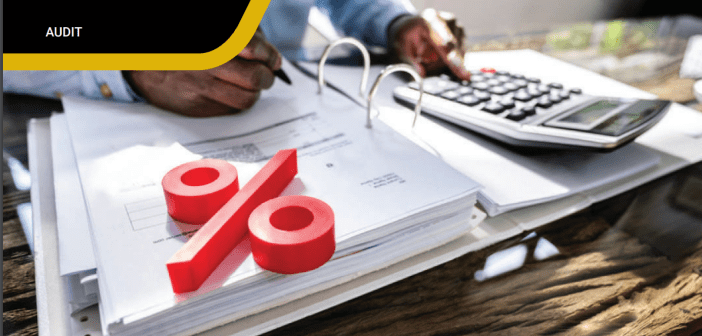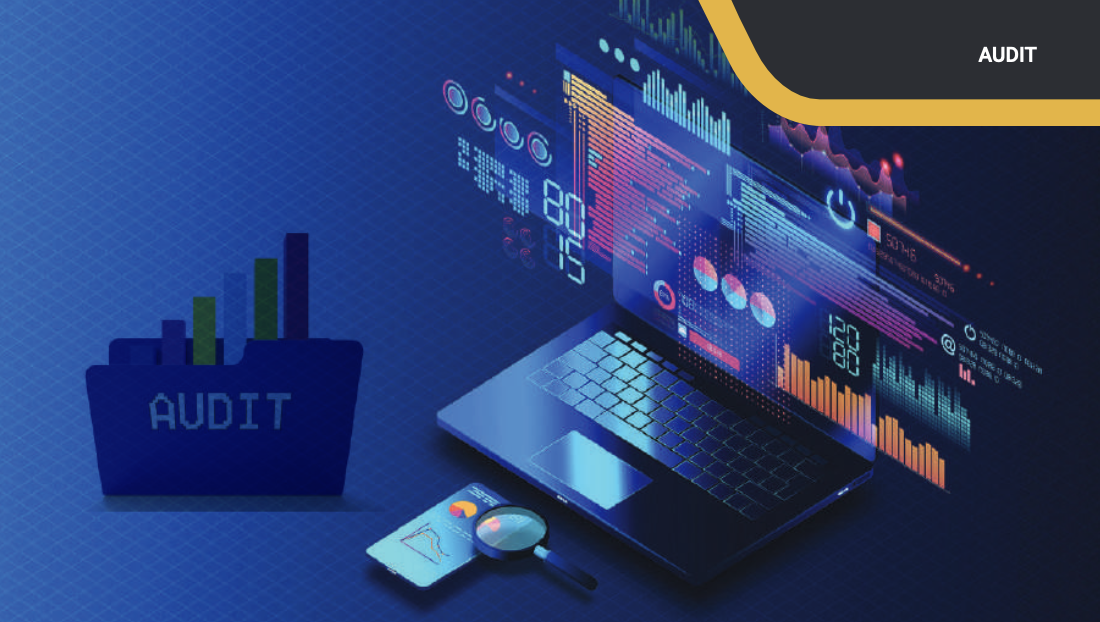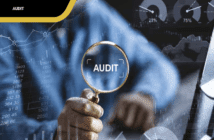Compiled by CPA Abdallah Mambo Dallu.
A Significant Impact on Audit Quality
In auditing, the concept of professional skepticism is ubiquitous. The professional standards define professional skepticism as “an attitude that includes a questioning mind, being alert to conditions that may indicate possible misstatement due to fraud or error, and a critical assessment of audit evidence.” Given this definition, one quickly realizes that professional skepticism can’t be easily measured. Nor is it something that is cultivated overnight. It is a skill developed over time and a skill that auditors should constantly build and refine.
Performing a quality audit in the current uncertain Covid-19 climate will require auditors to exercise heightened levels of professional judgment and professional skepticism in order to deal effectively with the range of challenges that COVID 19 is posing for both clients and audit practices. Regulators not only expect auditors to maintain an appropriate level of professional skepticism during every audit, but also to see documentation demonstrating how professional skepticism has been applied.
Many public scandals have raised questions about whether auditors and inspectors have been sufficiently
skeptical in their work. Some examples were Enron, WorldCom, many of the dealings that caused the 2008 financial collapse, Mitsubishi Materials, Wells Fargo, and Volkswagen.
skeptical in their work. Some examples were Enron, WorldCom, many of the dealings that caused the 2008 financial collapse, Mitsubishi Materials, Wells Fargo, and Volkswagen.
What does it really entail?
To show professional skepticism means:
i. having a questioning mind
ii. being alert to anything that may
indicate misstatement due to error or fraud
iii. critically assessing audit evidence.
i. having a questioning mind
ii. being alert to anything that may
indicate misstatement due to error or fraud
iii. critically assessing audit evidence.
Professional skepticism includes being alert to, for example:
a) Audit evidence that contradicts other audit evidence obtained.
b) Information that brings into question the reliability of documents and responses to inquiries to be
used as audit evidence.
c) Conditions that may indicate possible fraud.
d) Circumstances that suggest the need for audit procedures in addition to those required by the ISAs. (ISA 200 A.18).
b) Information that brings into question the reliability of documents and responses to inquiries to be
used as audit evidence.
c) Conditions that may indicate possible fraud.
d) Circumstances that suggest the need for audit procedures in addition to those required by the ISAs. (ISA 200 A.18).
Elements of professional skepticism Professional skepticism makes a significant impact on audit quality. It has three elements:
1. Competence: The knowledge, skill, and overall ability of the auditor. You must possess the proper knowledge and skills to perform reliable audits.
2. Approach: The integrity and good faith of the auditor. You should not assume honesty or dishonesty, merely recognize that fraud, misstatement, and misrepresentation of essential facts can happen.
3. Action: This element refers to the importance of performing a robust risk assessment, planning the engagement based on the risks involved, ensuring rigorous engagement supervision, and the diligent gathering and evaluation of audit evidence.
2. Approach: The integrity and good faith of the auditor. You should not assume honesty or dishonesty, merely recognize that fraud, misstatement, and misrepresentation of essential facts can happen.
3. Action: This element refers to the importance of performing a robust risk assessment, planning the engagement based on the risks involved, ensuring rigorous engagement supervision, and the diligent gathering and evaluation of audit evidence.
Why professional skepticism is important
Professional skepticism plays a fundamentally important role in the audit, and forms an integral part of
the auditor’s skill set. It facilitates the appropriate exercise of professional judgment, particularly regarding
decisions about:
• the nature, timing and extent of audit procedures to be performed to reduce the risk to an appropriate
level;
• whether sufficient appropriate audit evidence has been obtained and whether more needs to be done to
achieve the objectives of the relevant assurance standards; • evaluation of management’s judgments (particularly regarding the application of the entity’s applicable financial reporting framework in the context of an annual audit);
• the drawing of conclusions based on the audit evidence obtained.
the auditor’s skill set. It facilitates the appropriate exercise of professional judgment, particularly regarding
decisions about:
• the nature, timing and extent of audit procedures to be performed to reduce the risk to an appropriate
level;
• whether sufficient appropriate audit evidence has been obtained and whether more needs to be done to
achieve the objectives of the relevant assurance standards; • evaluation of management’s judgments (particularly regarding the application of the entity’s applicable financial reporting framework in the context of an annual audit);
• the drawing of conclusions based on the audit evidence obtained.
The application of professional skepticism enhances the effectiveness of an audit procedure and of its application and reduces the possibility that we might select an inappropriate audit procedure, misapply an appropriate audit procedure, or misinterpret the audit results.
Emphasizing importance of professional skepticism Professional skepticism within the engagement team is influenced both by the actions of the engagement leader and other members of the engagement team. The actions of the engagement leader and appropriate messages to other members of the engagement team need to emphasize that quality is essential in performing audit engagements and the importance to audit quality of, for example, the engagement team’s ability to raise concerns without fear of reprisals and in issuing auditor’s reports that are appropriate in the circumstances.
An ideal opportunity to address and emphasize with the engagement team the importance of maintaining professional skepticism throughout the audit is at a team meeting early on in the planning of the engagement. The engagement leader may further emphasize the importance of professional skepticism when taking responsibility for:
a) the direction, supervision and performance of the audit engagement;
b) review of work performed and discussion; In this regard, the engagement leader, in particular,
has much knowledge and experience to impart in helping less experienced team members develop
a critical and questioning mind through review of, among other matters, critical areas of judgment
and significant risks.
c) the engagement team undertaking appropriate consultation on difficult or contentious matters and the
implementation of the conclusions reached from such consultations.
a) the direction, supervision and performance of the audit engagement;
b) review of work performed and discussion; In this regard, the engagement leader, in particular,
has much knowledge and experience to impart in helping less experienced team members develop
a critical and questioning mind through review of, among other matters, critical areas of judgment
and significant risks.
c) the engagement team undertaking appropriate consultation on difficult or contentious matters and the
implementation of the conclusions reached from such consultations.
While activities at the firm level and engagement level contribute to the mindset of professional skepticism, it is the responsibility of each individual auditor to maintain an attitude of professional skepticism.
Professional skepticism plays a fundamentally important role in the audit, and forms an integral part
of the auditor’s skill set. It facilitates the appropriate exercise of professional judgment,
Documenting professional skepticism Given that professional skepticism is a state of mind, we may not document every aspect of how we applied skepticism throughout the audit. Nevertheless, audit documentation remains critical in evidencing professional skepticism because it provides evidence that the audit was planned and performed in accordance with relevant assurance standards. Professional skepticism is often demonstrated in the various discussions held with the audit team, management, and those charged with governance. That is why it is important that we properly document such discussions to demonstrate how professional skepticism was applied. Examples of circumstances where documentation is
particularly important include:
particularly important include:
i. probing questions and management responses as part of normal audit procedures, e.g., understanding
controls;
ii. identified or suspected noncompliance with laws and regulations, and the results of discussions with management;
iii. basis for conclusions regarding the reasonableness of accounting estimates, including consideration
of subjective and objective factors;
iv. identified information that is inconsistent with the final conclusion regarding a significant matter;
v. basis for conclusions on the reasonableness of areas of subjective judgments;
vi. basis for adequacy of disclosures;
vii. basis for conclusions about the authenticity of a document when further investigation is undertaken.
controls;
ii. identified or suspected noncompliance with laws and regulations, and the results of discussions with management;
iii. basis for conclusions regarding the reasonableness of accounting estimates, including consideration
of subjective and objective factors;
iv. identified information that is inconsistent with the final conclusion regarding a significant matter;
v. basis for conclusions on the reasonableness of areas of subjective judgments;
vi. basis for adequacy of disclosures;
vii. basis for conclusions about the authenticity of a document when further investigation is undertaken.
Specific applications of professional skepticism
The IAASB outline key areas of audit in their article “Professional Skepticism in an Audit of Financial Statements,” as;
I. Fraud – As per ISA 240.8, The Auditor’s Responsibilities Relating to Fraud in an Audit of Financial
Statements, specifically refers to professional skepticism stating that ‘when obtaining reasonable assurance, the auditor is responsible for maintaining professional skepticism throughout the audit,
considering the potential for management override of controls and recognizing the fact that audit procedures that are effective for detecting error may not be effective in detecting fraud.
I. Fraud – As per ISA 240.8, The Auditor’s Responsibilities Relating to Fraud in an Audit of Financial
Statements, specifically refers to professional skepticism stating that ‘when obtaining reasonable assurance, the auditor is responsible for maintaining professional skepticism throughout the audit,
considering the potential for management override of controls and recognizing the fact that audit procedures that are effective for detecting error may not be effective in detecting fraud.
II. Accounting estimates – this can include fair value accounting estimates, the use of significant assumptions by management in developing accounting estimates, and reviewing the judgements and
decisions used by management for management bias in developing accounting estimates.
decisions used by management for management bias in developing accounting estimates.
III. Going concern – the auditor should review management’s assessment of going concern and whether
management’s plans are feasible, this being particularly important where there is a significant doubt over the entity’s ability to continue as a going concern.
management’s plans are feasible, this being particularly important where there is a significant doubt over the entity’s ability to continue as a going concern.
IV. Related party relationships and disclosures – it can be difficult to obtain information on related parties, as knowledge may be confined to management meaning that the auditor may have to rely on management to identify all related parties The auditor should also be skeptical when assessing the business rationale behind related party transactions.
V. Consideration of laws and regulations – the auditor should be alert throughout the audit for indications
that there may have been a suspected non-compliance with laws and regulations.
that there may have been a suspected non-compliance with laws and regulations.
Conclusion
The need for professional skepticism cannot be overemphasized’ and that ‘adopting and applying a skeptical mindset is ultimately a personal and professional responsibility to be embraced by every auditor’. Given the increasingly complex and subjective nature of IFRS requirements, auditors must be confident to challenge management on a range of matters relevant to the preparation of the financial statements and national regulators such as the ICPAK and IIA are keen to support auditors in the application of professional
skepticism. This, they believe, is an essential element of quality control, and in safeguarding the credibility of the audit opinion.
skepticism. This, they believe, is an essential element of quality control, and in safeguarding the credibility of the audit opinion.




